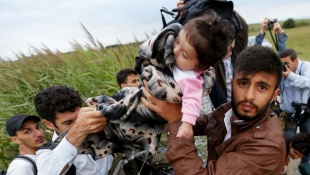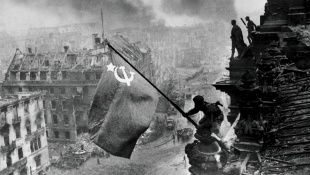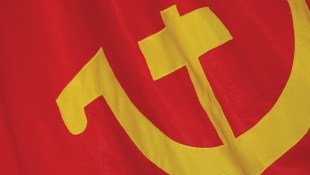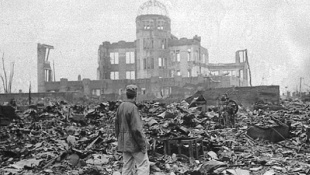1. The Central Committee, having met on February 26 and 27, decided that the venue for the 19th Party Congress, which will be held on November 30, December 1 and 2 of 2012, will be the Municipal Sports Complex – City of Almada.
The Central Committee took decisions regarding the preparatory stage and the convening of the Congress, namely in what concerns methodology, stages and goals, with a view to ensuring a broad participation by the Party collective.
The Central Committee has indicated a set of key issues for the initial debate regarding the contents of the Theses – Draft Political Resolution. It has defined guidelines for the Draft Ammendments to the Party Programme, which serve as the basis for assessment and debate within the Party bodies and among its members. It has put forth topical elements for the initial preparation of the drafts that will be put up for discussion.
2. The 19th Congress will take place at a stage of the country's life that is marked by the harmful consequences of capitalism's exploitative nature and of its structural crisis, as well as of the European Union's integration process and the right-wing policies of the past decades, which are now embodied in the Pact of Aggression that was signed by the PS [Socialist Party], PSD [Social Democratic Party] and CDS-PP [Social Democratic Center – People's Party], with the IMF, the European Union and the European Central Bank (ECB ), and which counts on the support of the President of the Republic. This Pact furthers the course of exploitation, impoverishment, social injustice, economic recession, unemployment, precariousness, poverty, debasement of the democratic regime, and compromises national sovereignty. In this context, the Congress is called upon to assess the national situation, the developments of the European Union's process of capitalist integration and the international situation, all of which are inseparable from the worsening structural crisis of the capitalist system.
An essential goal is to strengthen the PCP, its organization, its activity and spirit of initiative, as well as its political and ideological influence. The 19th Congress will be called upon to debate and define the guidelines, priority fronts of work and tasks that are necessary to develop and intensify the struggle, to strengthen the broad mass movements and organizations, to expand a broad- based political activity, to make the Party organizations' activity and intervention more dynamic. In the current domestic and international context, the 19th Congress acquires great significance and projection. It must assess and respond to the situation, defending the interests and aspirations of the workers and the people, rejecting the Aggression Pact, breaking with the right-wing policies, for a patriotic and left-wing policy, for an advanced democracy and socialism, confidently asserting the PCP's values, ideal and project.
3. The Central Committee has indicated issues and topics for the Party's collective debate during the first stage of preparation for the 19th Congress, in order to ensure that the definition of the key elements that must be embodied in the Theses – Draft Political Resolution is made with the maximum contribution by all Party members and bodies. The following aspects are indicated, and collected into four areas, although this is not necessarily the final structure of the document that will be put up for debate at the Congress:
The international situation
The increasingly acute structural crisis and contradictions of capitalism. The main trends of development, confirming the fundamental theses of marxism-leninism. Capitalism's nature and historical limits.
The hegemony of finance capital. The intensification of workers' exploitation, the offensive against the rights and achievements of the workers and peoples, and the project to impose upon the world a social and civilizational regression of historic proportions.
Capitalism's uneven development and the growing inter-imperialist contradictions. The situation within the Triad. The decline of the USA's hegemonic power and its growing aggressiveness. The crisis in, and of, the European Union. The complex processes of realignment of forces. The so- called emerging countries.
Processes of internationalization, cooperation and integration. Their nature and prospects.
New and old forms of domination by the ruling class. Recolonization, neo-colonialism and the role of the sovereign State. The system's mechanisms of “regulation”. International and supranational structures of cooperation.
Democratic rights, democracy and the crisis of the bourgeois system of representation.
Authoritarian, securitarian and fascistic trends.
The predatory nature of capitalism. Environment and natural resources. Energy and food crises. Imperialism's increasingly acute offensive as a response to the growing structural crisis of capitalism. Economic problems of the main imperialist powers and enhanced militarism. The arms race and militarization of various spheres of social life. The threats of war.
The multiplication of hotbeds of imperialist war. Processes of imperialist domination systematically resorting to interference, blackmail and destabilization. The strengthening of political-military blocs within the framework of NATO's globalization. The Lisbon Summit and the new strategic concept. The militarization of the European Union and its ever stronger imperialist nature. The perversion of international law and the instrumentalization of the UN.
Imperialism's recolonizing and militarist offensive, and its main expressions. Incidences upon the Middle East and Asia-Pacific. Natural resources, food and energy at the core of the aggressive and expansionist strategy of imperialism.
The intensification of the ideological offensive. World-wide disinformation centrals. Processes and ontents of the manipulation and moulding of mentalities on a global scale. Main resources and tools.
The sharpening class struggle and the shrinking basis of support for capitalism. Objective and subjective factors for the development of the struggle. The struggle of the working class and the workers. The struggle of farmers. The struggle of the youth, women, intellectuals and other social strata. Organized struggle, indignation and revolt. The key role of the class trade union movement and the struggle against reformism and class conciliation. The struggle for peace.
The struggle of the peoples of Africa, the Middle East and Asia against imperialism's recolonizing and aggressive offensive, for social progress and to assert national rights. Progressive processes and the assertion of sovereignty in Latin America; their importance on a regional and international level.
The articulation between the struggle on a national level and internationalist solidarity. The national question, indissociable from the struggle against capitalist exploitation.
The major forces of social progress and in the anti-imperialist struggle. The importance of their cooperation and unity in action. The anti-impperialist front. The ideological struggle and the struggle against social-democracy as a structural component of imperialism.
The World Communist and revolutionary Movement. The irreplaceable role of Communist Parties, of their close liaison with the masses and of their internationalist cooperation and solidarity. Challenges, shortcomings, delays and progresses. Processes of decharacterization and
expressions of sectarianism. Basic principles of relationship on a bilateral and multilateral level. Proletarian internationalism. Communist Parties, their organizational and ideological strengthening and their cooperation with other revolutionary and progressive forces. The importance of the process of International Meetings of Communist and Workers' Parties.
Socialism: the alternative to capitalism. Relevance of the Communist ideal and project. The dangers resulting from the deepening crisi of capitalism and the potential for developing the revolutionary struggle. Diversity of conditions and of paths towards socialism. The importance of the revolutionary Party and the decisive role of the masses of the people.
National Situation
The deepening of the process of capitalist integration in the European Union, its consequences, developments, contradictions and constraints upon national development. The Euro while strategic project of the main powers and the European Big Capital. The new instruments of economic, budgetary and political domination of the European Union. The federalist ambitions and the colonial-like attitudes, process against the workers and peoples. The necessary affirmation of national sovereignty in face of the processes of submission.
The Pact of Aggression, program of intensification of exploitation, of social regression, of pillage, of economic decline and alienation of sovereignty. Consequences and constraints of this program of submission and interference in the sovereign development project of the country. The rejection of the Pact as a national imperative and condition for a better future for workers, people and the country.
Role and responsibilities of governments and right-wing parties in the deepening of the country’s problems and its external dependence. The right-wing policy as an expression and implementation of the interests of monopolist groups; the subordination of the political power to the economic power; the reconfiguration of the State, role of the national State, the structures of the European Union and other transnational powers, at the service of the interests and projects of Big Capital. The process of capitalist centralization and concentration. The restoration of monopolist capitalism, its dynamics and characteristics, ties with foreign groups and capitals, its presence and degree of domination over national economy.
External dependence and the main structural deficits of the national economy. The abandonment of national production and the deindustrialization of the country. The financialization of the economy.
The program of privatizations and the alienation of strategic sectors and companies as a factor of economic dependence, regression and compromise of the development of the country and a loss of sovereignty.
The worsening of regional asymmetries and the process of economic, social and human desertification of the country’s interior.
The offensive against worker’s rights, the changes to labor legislation. The intensification of exploitation as an instrument of capitalist accumulation. The devaluing of wages and pensions. The increase of injustice in income distribution, the spread of poverty, inequalities and social discriminations.
The situation of the new generations and the consequences of a policy based on job precarity and loss of rights.
The attack on public services. The mercantilization of the social roles of the State. The offensive against the National Health Service and the Public School. The decapitalization of Social Security, the reduction or elimination of social protection and the promotion of assistance and charity based policies.
Not abiding, violating, and disrespecting the Constitution of the Portuguese Republic. The restrictions upon liberties, rights and citizen’s guarantees, repressive measures, processes of intimidation and limitation of participation. The attack upon the independence of the judicial power and the distancing of the access to justice. The anti-democratic control of the information services, the disfigurement of the role of the security forces. The subversion of local power, attacks upon the rights of populations. The attacks on regional autonomy. The impoverishment and deformation of the democratic content of the regime, threats and consequences.
The changes in the conceptions and framework of the national defense policy, the situation of the Armed Forces, and the constitutional mandate of its missions. The foreign policy and its submission to imperialism.
The cultural policy, the attack on national culture, the elitization and mercantilization of cultural activities. The ideological offensive, the central axis and objectives, instruments and means of communication, the lines of diversion and manipulation. Education and its contents. The domination of mass media by economic groups.
The alternative policy for the development of the country, the elevation of living conditions and social progress. The rupture with the right-wing policy and the rejection of the ongoing Pact of Aggression. The Constitution of the Portuguese Republic, and value and reference. A patriotic and left-wing policy, condition of development of affirmation of the country’s sovereignty. Struggles, mass organizations, political initiative and alternatives
Mass struggle: struggle of the working class and all workers; struggle of other anti-monopolistic classes and sectors; struggle of local populations.
The role of the mass struggle. Characteristics of its development. Multiplication, intensification, broadening and convergence. Conformity, radicalization and provocations. False exits. The development of the mass struggles, determining element of resistance, rupture and transformation. Social forces: elements of its evolution and arrangement. The development of a vast social front of struggle.
Mass organizations and movements. The trade-union movement and other organizations of the working class. Mass organizations and movements of other classes, groups, social sectors and the struggle of local populations.
Political struggle, electoral struggle and institutional action.
Political context. Political forces. The correlation of forces and its expression in the political and institutional spheres. Cooperation and convergence of democrats and patriots.
The alternative. Rupture with the right-wing policy, essential element of an alternative process. An alternative policy, patriotic and left-wing. Political and institutional expression, the role of the mass struggle, dynamics and social support. The strengthening of PCP, fundamental issue, necessary, indispensable and irreplaceable element.
The Party. The affirmation of the communist identity. The essential elements of identity of the Party.
The Program and Statutes, the changes to the Party Program. The framework in which the Party acts and the increased demands placed upon it.
The Party, its notable action, its strength and capacity for intervention. The fundamental orientations for its reinforcement. The affirmation of its principles, its unity and cohesion.
Leadership. The work of the leadership at the various levels, its reinforcement, its articulation with the intervention of the organizations and cadres. The Leaderships of the Regional Organizations, Municipal Commissions, professional and workplace Sector Organizations and other intermediate organisms. Functioning, work style, collective leadership, collective work and individual responsibility. The role of the Party leadership.
Priorities and means.
Cadres. Characteristics, availability and militancy. The assumption of responsibilities by a large number of cadres. Rejuvenation. The responsibilization of worker cadres, youth and women. The indispensable role of the Party’s workers. Political and ideological education. Critic and auto critic. Militancy. The decisive role of the militant action in the strength and intervention of the Party. Its reinforcement and broadening.
Organization. The priority of organization and intervention of the Party with the working class and workers, in the companies and work places and its effective implementation. The creation and energizing of cells and stimulus towards their intervention. Energizing base organizations. Political content, action and initiative.
Structuring work with specific groups, social sectors and areas of intervention. The reinforcement of JCP (Portuguese Communist Youth). The action and organization in the field of culture and together with intellectuals and technical cadres. The work with the retired. Action with farmers and with micro, small and medium business. Work directed towards women. Work with other groups and social sectors.
The increased importance, the creation and regular functioning of the organizations of Party members that intervene in mass organizations and movements. Recruitment and integration of new militants.
Organisation, political action and links with the masses. Experiences, obstacles, advances and blockades. A continued and broad intervention, a style of work to implement and enlarge. Propaganda and press. Propaganda, a task of all Party bodies and members. Propaganda forms and means. Electronic means. Popularisation and reading of the “Avante”! and of the “O Militante”.
Ideological struggle. Ideological offensive. Essential lines of ideological struggle. Contents and means of intervention.
Financial Matters. The Party’s political and organisational independence. Increasing revenues and expenditure control.
International activity and relations.
4. The Central Committee underlines the topicality, objectives and essential proposals included in the Party Programme adopted by the 14th Congress in 1992, corresponding to the current historical stage, and in which is enshrined the struggle for an Advanced Democracy as an integral and constitutive part of the struggle of the Portuguese communists for socialism.
The Party Programme, defining and affirming a very timely and far reaching political Project, must undergo some content changes - on the basis of the present text and of its strategic orientation – allowing for the enrichment of its analysis and definition and taking into consideration the political developments in the country and in the world, since its adoption until our present time.
The Programme proved to have great depth and sense of future. It was and still is so. The changes to be introduced, incorporating the analysis of developments occurred and the present context, should contribute to a clearer identification by the Portuguese workers and people of the Party Project value, so that they seize it in their own hands. The Central Committee indicates the following guidelines to be considered for the proposed changes to the Party Programme: In the title of the programme «Portugal: an advanced democracy on the threshold of the 21st century” we indicate the present historical stage that the PCP proposes to the Portuguese people
and which is an integral and constitutive part of the struggle for socialism and communism.
The expression “on the threshold of the 21st century” should be replaced by elements that are part of the affirmation “Advanced Democracy- the present struggle stage”, thus attributing more visibility to the fact that it is inspired in the values of the April Revolution and to its projection and consolidation in the future of Portugal. We therefore consider that the programme should be titled “An Advanced Democracy- the April values in Portugal’s future”.
In the Introduction and in Chapter I, «The April Revolution, historical achievement of the Portuguese people”, should be maintained as the historical foundation of the Party Programme, as well as the concrete and deep expression of the application of Marxism-Leninism to the
Portuguese reality. It is esteemed necessary to introduce elements that, in the item on “The counter-revolutionary process”, may complete the analysis on the developments that characterise it in the recent period of national life and, in the item on “ Common Market and European Union”- obstacles and limitations to independence”, may update it with elements from recent evolutions and that may reassert and reinforce the idea, already included in the Programme, that “the Portuguese people have and must always have the right to decide their own destiny and chose the paths which they deem more adequate to their historical identity, interests and yearnings”.
In the definition of the Advanced Democracy project (Chapter II), it is relevant to underline and value its global configuration, its four inseparable strands (political democracy, economic democracy, social democracy and cultural democracy) and the five fundamental components or objectives (the regime of freedom; economic development based on a mix economy; social policy;
cultural policy; and an independent and sovereign motherland). It is equally important to consider some synthesis, thus opposing eventual conjuncture or detailed elements, and reaffirm – which is more justified in the present context- the decisive role of mass struggle and its developments for the necessary rupture in order to implement the Advance Democracy Project.
In Chapter III, «Socialism– the future of Portugal», in reaffirming its content, we must consider introducing an update that expresses the deepening of the capitalist system’s structural crisis, which is quite patent today, and addressing the world evolution in the aftermath of the defeats of the struggle for socialism and its negative consequences to workers and peoples of the world, reinforcing the necessity and topicality of the communist Project and of PCP’s objective: “ Socialism – the future of Portugal”.
In Chapter IV, « The Party “, we must reaffirm its content, which corresponds to the indispensable definitions of the Party’s identity and role.
Considering and discussing the proposals of changes to the Party Programme is a great opportunity for a deep debate in the party collective, by projecting, amidst the workers, the youth and the Portuguese people, not only those proposals but essentially the political Project translated into the PCP Programme.
The Central Committee considers that the Party Constitution, improved in previous Congresses, responds to the current needs, therefore we believe that there is no justification to change it, except in matters considered necessary to make it adequate to eventual amendments to the Party Programme.
5. The Central Committee, considering previous experiences and trying to foster the maximum participation of the whole Party collective, of the members and bodies, defines three entwined and complimentary phases for the 19th Congress preparation and holding:
Phase one, until mid-May, with a discussion across the whole Party on the fundamental issues the Congress must respond to, on structural matters to be included in the Theses – Draft Political Resolution and Draft Amendments to the Party Programme, departing from questions, topics and guidelines contained in the Central Committee Resolution passed in the 26-27 February meeting.
Phase two, until August, will include the drafting of the Theses - Draft Political Resolution and Draft Amendments to the Party Programme, taking into consideration the discussions and contributions of phase one.
Phase three, beginning in September, after the publication of documents in the Avante!, will open up a space for the intervention of the Party members in the broad Party debate on the draft documents for discussion, adopted by the Central Committee. This will also be the period for the election of delegates, in accordance with the regulations previously adopted by the Central Committee.
6. The 19th Congress will be held in a particularly complex situation. The process of its preparation and holding must be inserted in the global Party work and include its specific requirements as well as the development of mass struggle and the Party’s intervention and strengthening.
The Central Committee calls on the Party bodies and members and on the entire Party collective, through their experience, reflection and opinion, to contribute to the success of the 19th Congress, in the path of struggle for a rupture with the right wing policy, for a patriotic and left wing policy, for advanced democracy and socialism.



